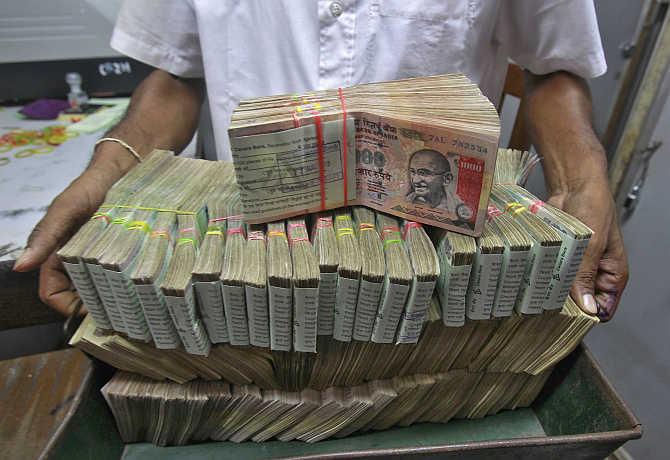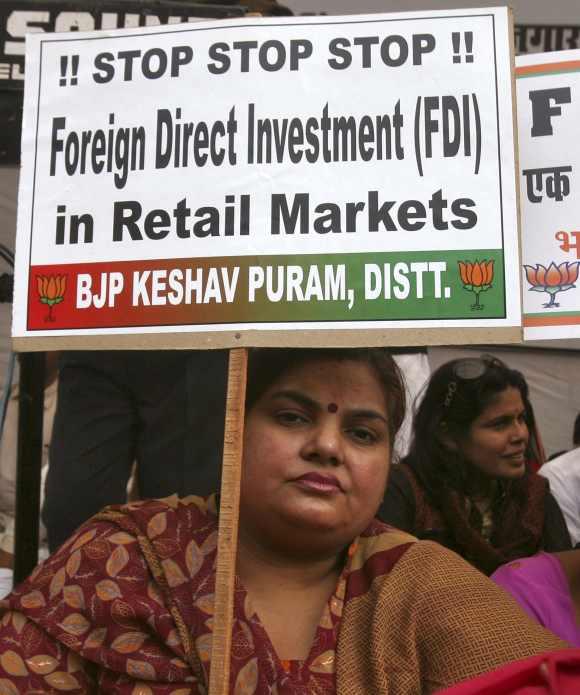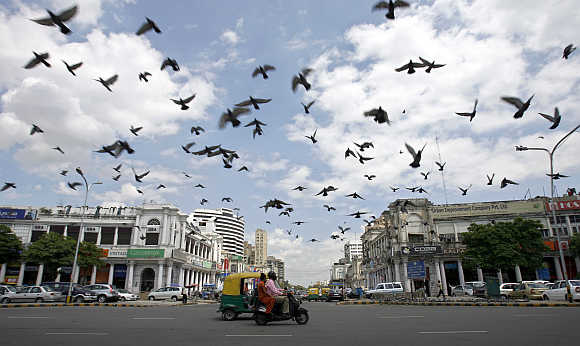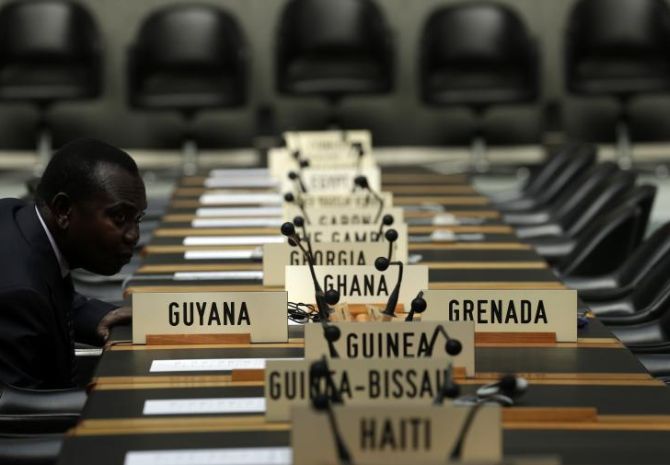 | « Back to article | Print this article |
'The govt should open up service sectors in coming years'
Asean countries may be pressuring India to relax this policy but no bilateral investment obligations are being violated as a result; it's the power vested in the states that is worrying them, says T S Vishwanath.
The Asean-India Trade in Services Agreement is yet to roll out since all the Association of Southeast Asian Nations, or Asean, members have not yet ratified the deal.
Although no official communication is available on the reasons for the delay, reports point to the likelihood of countries such as Thailand and Indonesia holding back the ratification till they get substantial entry into India for some specific areas of interest to them.
The two or three sectors that the two countries are said to be seeking include greater access for foreign direct investment (FDI) in retail as also greater commitments on movement of chefs and spa workers to India.
Click NEXT to read more...
'The govt should open up service sectors in coming years'
Some of the Asean countries want New Delhi to provide higher commitments than what are currently available under the domestic policy regime in the country.
Interestingly, Thailand does not have a very open services regime but is said to have indicated its willingness to go beyond its current regime if India is willing to reciprocate in some specific areas.
If the stand-off continues for long, it would prove detrimental for both sides since the goods agreement has already been in place for a few years and there is a need to make the agreement more comprehensive by including services and investment.
Click NEXT to read more...
'The govt should open up service sectors in coming years'
One specific demand, which is likely to have a deep impact, is on further opening of FDI in retail.
The issue of concern for Indonesia and Thailand is ostensibly the fact that the power to allow FDI in retail is now with the states, and that makes an entry into the country susceptible to uncertainty arising from political pressure on policy issues.
Further, the Bharatiya Janata Party (BJP)'s stand on not allowing FDI in multi-brand retail in its manifesto has heightened the fear in the minds of companies wanting to invest in India, as analysts have been predicting a BJP-led coalition government coming to power at the Centre.
Click NEXT to read more...
'The govt should open up service sectors in coming years'
Interestingly, Prabash Ranjan of the South Asian University had in mid-2013 published a paper in Trade, Law & Development titled "FDI in multi-brand retail trading and India's bilateral investment treaties" that had analysed the issue of India falling foul of its bilateral investment treaties (BITs) because of the new FDI law on retail.
The paper had, however, concluded that the FDI policy on retail as such "is not inconsistent with India's bilateral investment treaties obligations primarily because [the] majority of Indian BITs do not recognise investment protection obligations at the stage of admission and establishment.
Click NEXT to read more...
'The govt should open up service sectors in coming years'
Thus, India has the right to regulate foreign investment in terms of imposing conditions on its entry without its BITs curtailing this right.
However, it is important to note that a BIT dispute may arise if a later state government reverses the policy made by an earlier state government, after foreign investment has been made. India will have to guard herself from such potential conflict situations."
Click NEXT to read more...
'The govt should open up service sectors in coming years'
The paper also pointed out that India has not had any problem with South Korea on this count, though an agreement already exists for opening up the services sector.
The investment chapter of the India-Korea agreement provides equal treatment to investors in the domestic market as also South Korean investors. Therefore, the FDI policy in retail is currently in line with India's international obligations.
Click NEXT to read more..
'The govt should open up service sectors in coming years'
The current delay in operationalising the India-Asean services agreement provides a platform for some discussion on the issue of India's negotiating stand in bilateral or regional agreements in the area of services.
This issue is likely to gain momentum, as New Delhi's trade partners will seek commitments that go beyond the current regulations in place in the country.
Click NEXT to read more...
'The govt should open up service sectors in coming years'
It will be important to see how India will manage this issue in more demanding negotiations like the Regional Comprehensive Economic Partnership (RCEP) Agreement in the coming years.
The RCEP is expected to be a comprehensive and ambitious agreement. The RCEP is being negotiated between 16 members - the 10 Asean countries and Australia, India, China, Japan, South Korea and New Zealand.
It will be important for government and industry to prepare a comprehensive plan on opening up the services sectors in the coming years to achieve substantial market openings from partners for our service exporters.








